I need to parse through a string and add single quotes around each Guid value. I was thinking I could use a Regex to do this but I'm not exactly a Regex guru.
Is there a good Regex to use to identify a Guid?
My second question is once I've found a valid regex I'm assuming I would use Regex.Replace(String, String, MatchEvaluator) but I'm not quite sure of the syntax. Maybe something like:
return Regex.Replace(stringToFindMatch, GuidRegex, match =>
{
return string.Format("'{0}'", match.Groups[0].ToString());
});
A string that I'm trying to parse may look like this:
"SELECT passwordco0_.PASSWORD_CONFIG_ID as PASSWORD1_46_0_, FROM PASSWORD_CONFIG passwordco0_ WHERE passwordco0_.PASSWORD_CONFIG_ID=baf04077-a3c0-454b-ac6f-9fec00b8e170; @p0 = baf04077-a3c0-454b-ac6f-9fec00b8e170 [Type: Guid (0)]"
